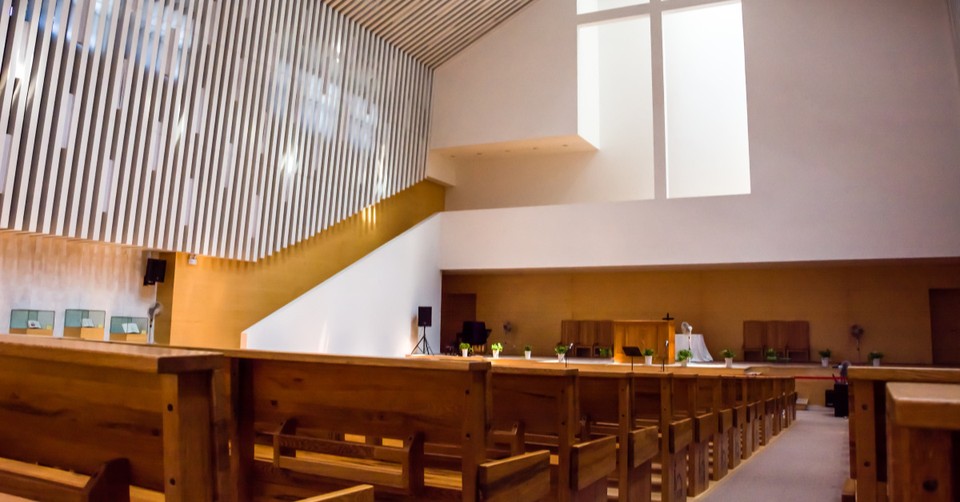"I Go to a Bible Church" – The Subtle Danger of This Trending Phrase

Let me preface: I hope you go to a church that centers on the authority of God’s Word. In fact, your church isn’t a church apart from the Bible. Be a Bible church. Be a Bible believer. Please.
However, as this trendy idea of “I don’t go to a denominational church; I go to a Bible church” picks up speed, I would like to slow down and reflect on some of the subtle, duck-and-dodge agendas that can easily hide behind this concept.
Whether you’re a fan of the phrase, this is your first time catching wind of the trend, or you’re sitting unsettled like me, let’s pause, reflect, and consider:
1. The Modern Church’s Subtle Addiction
The modern church is subtly, sometimes unknowingly, addicted to the appearance of being counter-cultural… but not in ways that honor Scripture. We see so many denominations caving, calling abortion, homosexuality, and transgenderism “gray areas” that should be addressed with nothing more than a love that won’t provoke tension. Church caves to culture consistently. Yet, today’s secular culture wants to look big, bad, and tough. It wants to go against the grit. Often, churches get caught in this same momentum, wanting to look different from what is traditional and biblical.
I’m afraid this is where the phrase “I don’t go to a denominational church; I go to a Bible church” stems from. Christians want to appease secular culture by looking as though they are pushing back against a more traditional, old-fashioned way of living out the Christian faith. It’s a catchphrase, just another hashtag, a hip way to make Jesus and the gospel more digestible for those who don’t quite want to die to themselves. This concept makes Christians appear more tolerable and willing to live amid the gray and defy traditional truths not tied to man’s denominational traditions but concreted in God’s Word.
So, when you say you don’t go to a denominational church but a Bible church, what is your motivation behind the phrase? Are you wanting to appear less divisive, less attached to traditional Christian values, and more concerned with poking holes in the church’s foundation? Or are you excited to tell people you are more of a Bible church because while the Bible is a dividing sword, its truth brings healing and unity?
Remember, we weren’t called to revolutionize an ancient gospel. An ancient gospel was birthed to revolutionize who we are today. The gospel’s power to transcend time doesn’t rest on how culturally appealing we make it seem but on the authority of Christ’s resurrection, which has the power to touch hearts until the end of time.
2. Bitterness’ Subtle Comeback
I grew up in a Baptist church and will never return to one. I experienced intense, now-diagnosed religious abuse, and I often have a hard time separating my one experience from all Baptist churches. I am aware that my experience muddies my ability to rightly see Baptist churches, so I understand that certain denominations can leave a bitter taste in your mouth. I truly relate to a believer who has beef with a particular church denomination.
My grandparents were a blend of Methodist and Presbyterian. My parents raised me Baptist. My in-laws are Roman Catholic. My husband and I attend a First Christian church. There’s a reason each of us pivoted from what we were raised in. Yet, our manmade preferences or negative experiences at one particular place serve no right to demonize denominational culture as a whole. In fact, if you take a few moments to research the history and foundation of each denomination, you will often discover truly inspiring, heroic men and women of faith who created a particular denomination not to segregate the church but to highlight different ways to serve God best.
But if you can’t see past the bitterness you have for the church, if you let the animosity root deep in the heart, it makes the idea of steering away from denominational principles not only appealing but safe and comfortable, the opposite of what you experienced at an unhealthy church.
My therapist calls this an avoidance tactic. I employ this negative behavior often in my battle with Obsessive-Compulsive Disorder. Rather than deal with what hurt me or might trigger me, I run in the opposite direction, never thinking to fact-check the new team I’m now a member of. It’s a fight-or-flight response to trauma, and bitterness teaches us to fight with vicious tactics, while unresolved memories teach us to run for fear of creating more bad ones.
So, are you proud to go to a Bible church and not a non-denominational church because your church centers on the Holy Spirit’s purifying, healing conviction, or are you wearing this banner as a bitter shield to hurl insults at a denomination that once hurt you?
There’s a reason God’s glory isn’t manifested in what we do but by what His Son did—and it’s often because we allow our agendas to shift and shape Christianity into what best suits our lived experiences. Beware, friends. This is dangerous territory.
3. The Subtle Human Tendency
Humans tend to identify themselves based on their experiences and perceptions of reality. People with similar backgrounds and outlooks then congregate together. This is how non-profits are formed, book clubs are started, and church congregations are created. This is why you are a member of a specific Facebook page, follow a certain Instagram hashtag, or prioritize Twitter feed from a particular person.
We clump together in hopes of finding strength and support we can’t muster alone. So while it might sound unappealing to come together under a particular denomination, this is, indeed, the very social practice you implement each day to navigate relationships.
At this rate, a “Bible church” will become its own denomination, its own Christian faction, and will implement certain practices, rules, and regulations that will eventually begin dividing people into more subsets. This isn’t because the Bible changes, but it is because the Bible divides. It separates sheep and goats, right from wrong, culturally acceptable from God-prohibited. People, in their sinful, flawed state, will continue to manipulate the Bible, abuse its authority, and/or ignore its warnings, creating continuous rounds of hurt and division.
If you’re proclaiming that you “don’t go to a denominational church but a Bible church,” understand that I'm not making any assumptions about why you use this phrase. Your intentions, and your church, could be passionately pursuing the gospel–to which I have no authority, no right, to nit-pick. Meanwhile, for those who have realized that this phrase serves to buffer their appearance and trendy look within the modern church culture, beware that you can't keep up with the never-ending cultural trends of sinful people. Nor should you. For those who use this phrase because they have unresolved bitterness stemming from a particular Christian denomination, understand a "Bible church" will still be at risk, still exposed to the same possibility of becoming as toxic as your former place of worship.
No church is perfect. No denomination is perfect. No influencer, pastor, or person is perfect. We taint everything we touch, and this doesn't serve as an excuse to ditch church attendance but serves as a beautiful reminder that it is only the unchanging character of God, revealed through His Word, that refines our hearts and makes us gold. No hashtags, political agendas, or personas required.
Photo Credit: ©Getty Images/Evening-T

Originally published April 24, 2023.




